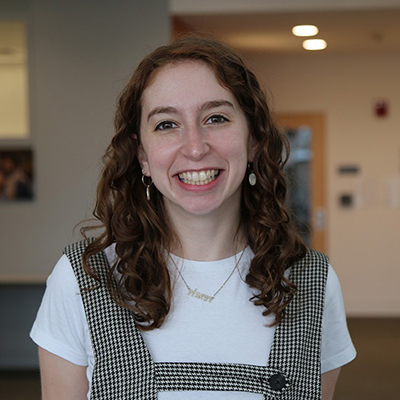 I applied to graduate school because I believed I had the right temperament, measurable drive, and agile flexibility to challenge policy. But I felt like I was lacking the tactical skills and knowledge one gets most often from education to excel in the field. So, I was excited to start school in the fall. The prospect of online classes felt like another hurdle, but not one that couldn’t be conquered. My fears did not surround the platform itself, rather my own ability to remain focused and engaged when not in the rigorous academic setting of a classroom and instead mostly confined to my bedroom. As the days got colder, the temptations to forego schoolwork and answer the bed’s beckoning call became harder to ignore. Course topics got more convoluted and difficult.
I applied to graduate school because I believed I had the right temperament, measurable drive, and agile flexibility to challenge policy. But I felt like I was lacking the tactical skills and knowledge one gets most often from education to excel in the field. So, I was excited to start school in the fall. The prospect of online classes felt like another hurdle, but not one that couldn’t be conquered. My fears did not surround the platform itself, rather my own ability to remain focused and engaged when not in the rigorous academic setting of a classroom and instead mostly confined to my bedroom. As the days got colder, the temptations to forego schoolwork and answer the bed’s beckoning call became harder to ignore. Course topics got more convoluted and difficult.
Yet Policy Analysis continued to make sense. The integration of quizzes and activities allowed me to stay on top of the concepts in class. I’ll admit, if you ask me to define “triangulation,” I may falter – but I can clearly describe the processes by which we conduct a cost-effective analysis. I can identify the work happening at an NGO and explain how it differs from work at the municipal level and the people employed in each sector. I can distinguish between different modes of analysis and when best to use a case study and meta-analysis.
While all of this is so helpful, the most important thing I walk away from Mike’s Policy Analysis class with does not center around one theory or research process. It has taught me to be confident in the unknown. The policy realm is ever-expanding and changing, and that means that nothing is ever completely solidified. Before Heller, I assumed that policy work meant that I needed to fully grasp every component before I could commit to a task. This sample course has provided a secure and nimble foundation for policy work. That is not to say that there aren’t many necessary and vital models and concepts that need to be addressed, as there are quite a few, but this class helped to illuminate who and how one becomes active in policy. Now that this is done, I am ready to really delve into the meat of the work. I have learned that because some of this work is dense, it requires more attention (and maybe a second or third read). But I came to graduate school because I believed I had the right temperament, measurable drive, and agile flexibility to challenge policy. And now I can add confidence to that list.
